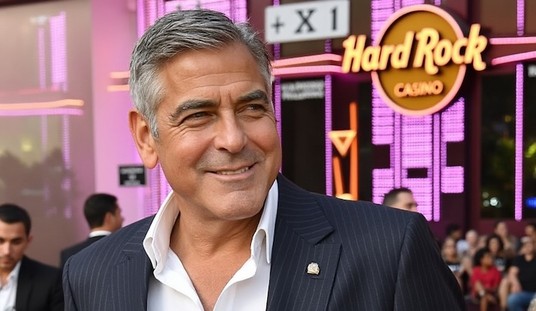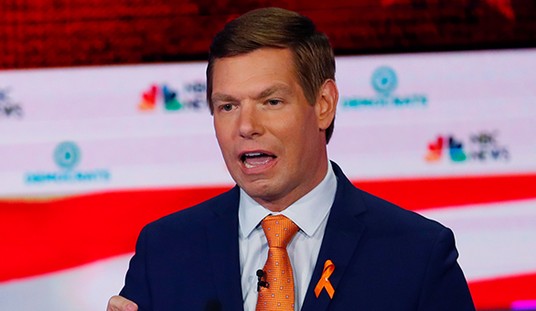Hillary Clinton must have read John Judis’ article “The Emerging Republican Advantage,” which appeared last January in the National Journal. In it, he argued that a “resurgent Republican coalition” is eroding what he once believed was an “emerging Democratic majority.” What changed is that what remains of the white-working class is deserting the Democrats in droves; and secondly, that Republicans are dramatically gaining the support of the American middle class, a group that Democrats used to take for granted. “The defection of these voters” Judis writes, “—who, unlike the white working class, are a growing part of the electorate—is genuinely bad news for Democrats, and very good news indeed for Republicans.” Reluctantly he concludes that we are still living in a Republican era.
Apparently, Hillary has gotten the message that if she is to win the race for the presidency, she will not be able to do it by relying on the old coalition that propelled her husband to victory. As Jonathan Martin and Maggie Haberman explained in the New York Times, her plan is to dispense “with the nationwide electoral strategy that won her husband two terms in the White House and brought white-working class voters and great stretches of what is now red-state American back to Democrats.” She is assuming nothing she does or says will win their votes, and hence, she has moved to the far-left and is running a campaign in which she will try to follow the path Barack Obama took.
Writing in National Review, editor Rich Lowry concurs that she cannot capture the voters her husband kept in Democratic ranks:
So the question for Hillary is whether a 67-year-old candidate who’s not a racial minority or particularly exciting can reenergize the electoral coalition defined by a youthful African American who rose to prominence on rhetorical flights of fancy about hope and change.
So rather than move to the center—Bill Clinton, after all, was previously the chair of the centrist New Democrat Coalition — she has decided to best both Bernie Sanders and Elizabeth Warren by moving far to the Left.
She is also hoping, as Noah Rothman points out, that she will receive the votes necessary to win from the 31 percent of voters who are Americans of color, and will expand the Hispanic vote and hold the vast majority of black voters who cast their ballots for Obama. Hence all the vitriolic speeches about how Republicans are seeking to prevent minorities and African-Americans from voting. And by this approach, she hopes the party’s far-left base will all turn out.
Times columnist David Brooks points out that the reason she sounds so phony whenever she argues a point is because no one is sure she really believes what she is saying. That is because her goal is to win a demographic, not to run on conviction. Brooks thinks she may be wrong to act on this strategy:
The mobilization strategy over-reads the progressive shift in the electorate. It’s true that voters have drifted left on social issues. But they have not drifted left on economic and fiscal issues, as the continued unpopularity of Obamacare makes clear. If Clinton comes across as a stereotypical big-spending, big-government Democrat, she will pay a huge cost in the Upper Midwest and the Sun Belt.
Is there a motive for Hillary waging a left-wing campaign beyond mere political expediency? I think the answer is simple: she believes what she says. Her husband was a centrist and did not come from a leftist background. Hillary did not either, but she became a leftist at college.
I pointed out in a 2008 article for The Weekly Standard that Tom Hayden, once America’s most well-known New Left firebrand, told readers of The Nation magazine (April 22, 2008) that Clinton herself had been as far left as one could get. And unlike Obama, she did not have the excuse of being eight years old when the New Left radicals were in their prime. Hayden revealed that Hillary “was in Chicago for three nights during the 1968 street confrontations” and that at Yale Law School in 1970 she chaired a meeting where students voted to join a national strike against the Vietnam War. The same year, during the trial of Black Panther leader Bobby Seale for murder, Clinton oversaw Yale Law students who were following the proceedings and looking for signs of government misconduct. Most significantly, Hayden writes, Clinton went to work after law school for the San Francisco law firm that defended the Panthers, led by Robert Treuhaft, a former member of the Communist Party.
The same year, journalist Carl Bernstein wrote that Hillary “exhibited an academic fascination with the Left and radicalism.” Later at Yale she was associate editor of an alternative law review that depicted “policemen as pigs and murderers.” Yet, notes Bernstein, in her 2003 memoir, Clinton breathed not a word of her activity on behalf of the Black Panthers, nor was she honest about why she went to work for the Robert Treuhaft law firm. Treuhaft told Bernstein that Clinton came to the firm because it was a “Movement law firm” and she was “in sympathy with all the Left causes.”
What if Hillary is really running her campaign to the left and out of the Obama tactical playbook out of conviction? Many believe she is doing it out of pure expediency and that once in office she will return to the center. But perhaps she still is at heart the young leftist of her past, and now her long pent-up inner leftist is finally being liberated.
She is running in a country that is still center-right, and not far-left. With a strong and principled Republican candidate, she may be setting herself up for a big loss.









Join the conversation as a VIP Member